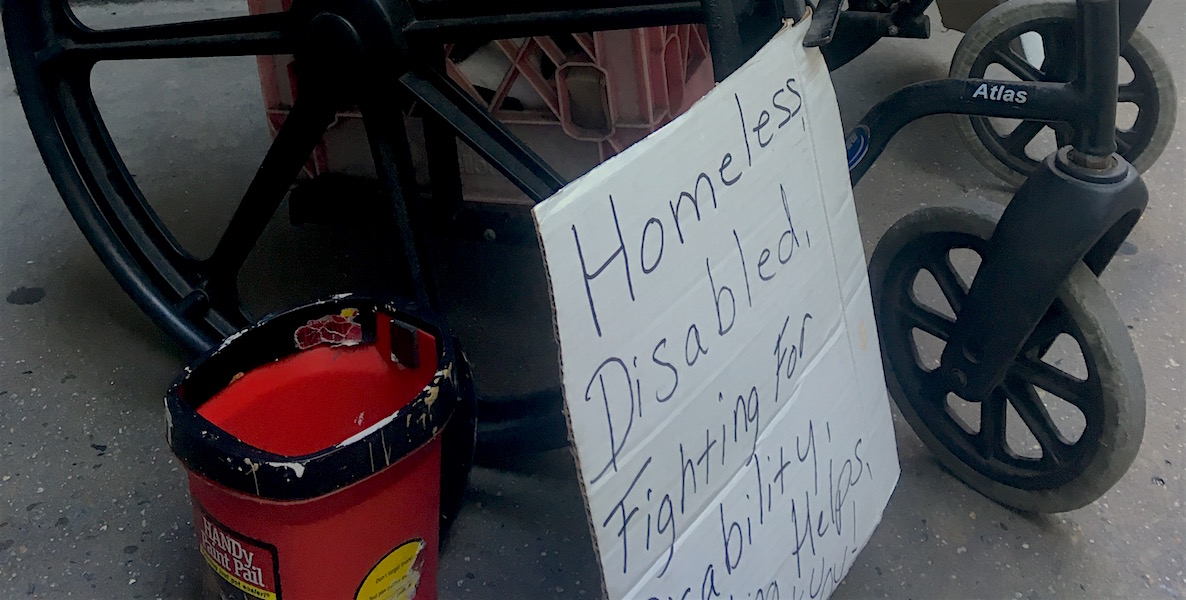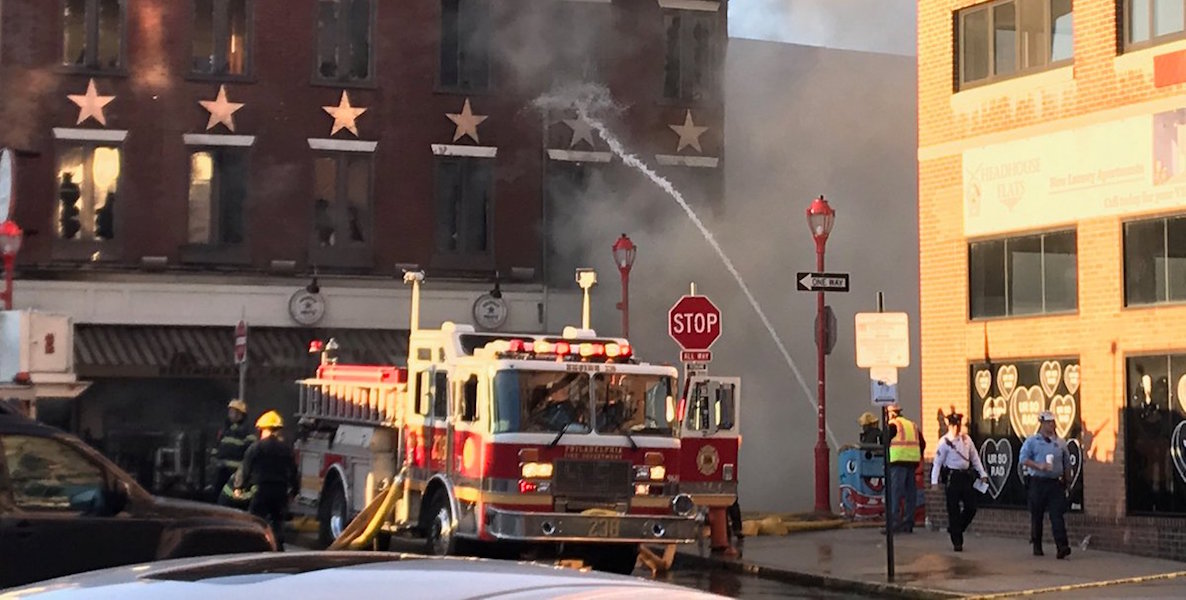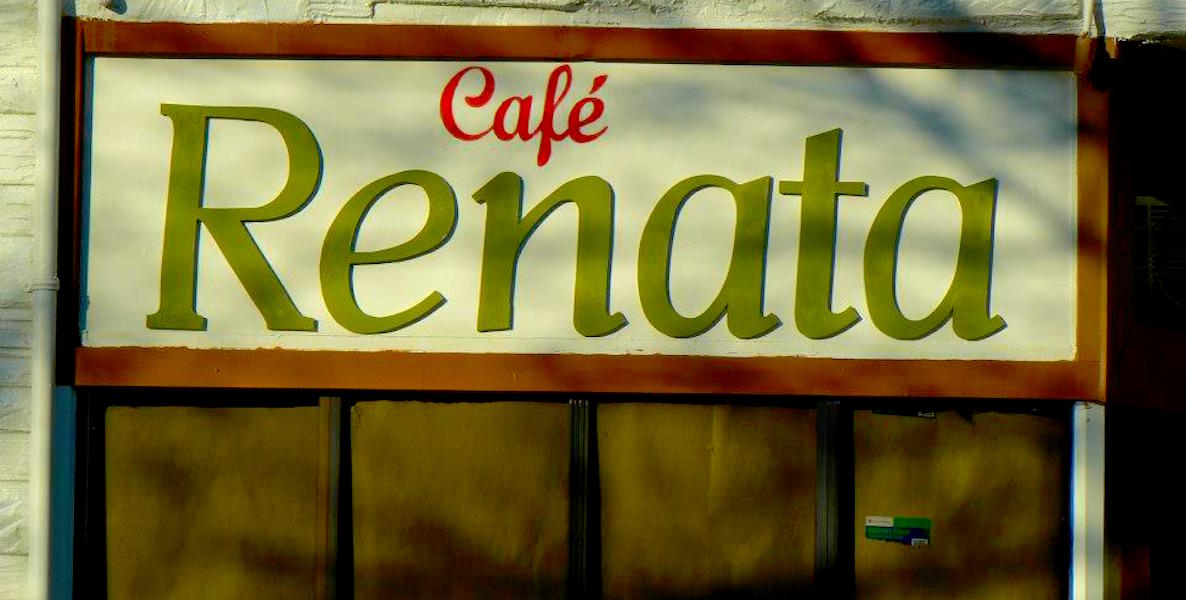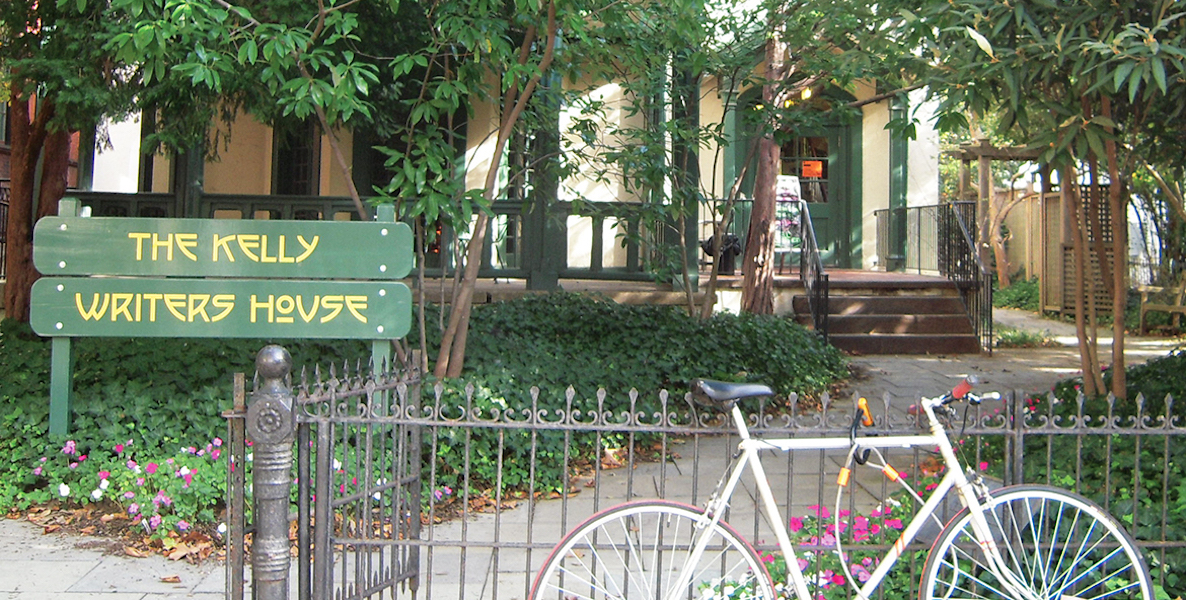For the longest time, there was nothing, save for a pile of towels and a black plastic crate. It was around 8:30 at night and the linens had just been brought back from the laundromat next door. They lay firmly packed on top of each other, still warm from the dryer. Earlier they had been used to clean a greasy stove top, or maybe it was the oven. The final employee soon locked the doors for the night.
The smoke began shortly thereafter. For nearly six hours the towels sent it wafting into the air as if it were a last-ditch attempt to warn someone, anyone, what was to come. But nobody seemed to notice. A chain reaction was underway, heat begetting heat, smoke begetting smoke, until there was only one final step to take: flame.

Kate Steenstra had only been dating Yasser Aiq for around three months when she heard that Café Clavé was closing. The building was microscopic, stuck like a forgotten puzzle piece at 4305 Locust St. between the “U-do We-do Laundromat” and “PP Grocery” Oriental food market. But she immediately thought of Yasser, who was a sauce chef at Parc Rittenhouse in Center City and dreamed of opening his own restaurant. She forwarded him the realtor’s phone number.
“Are you in? he texted her.
“What?” she sent back.
“Do you want to manage the place? Do you want to manage front of the house?”
Kate told him sure, half joking. It seemed a crazy idea at first. But then she began to consider the proposition seriously—her grant supporting her work as a lab manager at the University of Pennsylvania was set to expire and she had worked part-time at restaurants before. Plus, she could always quit if she didn’t enjoy it, or so she thought. “I quickly found out that that wasn’t the case,” she says.
After some rapid-fire negotiations with the landlord, a tough, old-school Armenian woman, Yasser and Kate signed the lease on January 17, 2013. Eleven days later, Café Renata opened its doors.
Renata began its life as a café, but Kate and Yasser harbored a grander vision for the place, one that eventually included full-service meals and a professional grade kitchen. They began scouring Craigslist for equipment—Yasser stumbled onto a restaurant that had recently closed in New Jersey and was begging to give away its old kitchen supplies. “It was just gathering things here and there,” says Yasser of his piecemeal strategy. “From the money that we made every month we would put back in and buy a new thing.”
After three months of steady improvements, Kate and Yasser were able tobuild their first brunch menu, which would come to be Café Renata’s signature meal. Back then, they only had one employee, a barista, who would work brunch alongside them.
Spending so much time at Café Renata together, Kate and Yasser began to view the restaurant as more than just a business. “It kind of became a part of our relationship,” Kate says. Which is why it was all the more devastating when, in the stroke of a night gone horribly wrong, the young couple awoke to find everything destroyed.
That summer, the restaurant closed for a full week to undergo renovations—Kate and Yasser gutted the bar, making space for a new café area, redid the front of the house, and expanded into the storage space. Their seating increased from 16 to 50, just in time for the new college semester. And every seat was going to be needed; with their increasingly popular brunch menu, lines of patrons had begun to form on Sunday mornings.
Kate and Yasser would wake up at 6 every morning and then work 16 hour days during those early months. Even when it snowed and other businesses around them decided to stay closed, they would be open. They didn’t have a choice. “That is the exhausting part of it,” Yasser says. “It might be the break time, but for you, it’s not.”
Spending so much time at Café Renata together, Kate and Yasser began to view the restaurant as more than just a business. “It kind of became a part of our relationship,” Kate says. “We learn about each other so much through just living this thing, doing it together,” Yasser adds. Which is why it was all the more devastating when, in the stroke of a night gone horribly wrong, the young couple awoke to find everything destroyed.

Nobody heard the smoke alarm until it was too late. Its shrill beeps, pulsating with maniacal rhythm, continued for six hours straight. The neighbors in the apartment above the restaurant were somehow unaware of creeping destruction just one floor below. It was only after the flame came to life that workers at the laundromat called the police. Fire trucks were dispatched 46 seconds later.
Yasser’s phone rang at 1:15 in the morning. A voice on the other end broke the news: “The shop is on fire.”
Yasser, still in disbelief, sprinted out of the house in pajamas and boots into the cold March night. He ran along 43rd Street, passing Delancey and Spruce and then, finally, Locust. It wasn’t until he reached the CVS Pharmacy just across the street from the restaurant that he saw the fire trucks—five or six of them in the middle of the street, sirens piercing the otherwise quiet night, their lights flashing in a deranged loop.
In the aftermath of the fire, people would anonymously slip cash-filled envelopes under the front door. A fundraiser organized by patrons of the restaurant also yielded a huge turnout. “It was there and then,” Yasser says, “when we were like half drunk, we said ‘Ok we have to go back and do this.’”
He stopped running. With that many trucks outside, he knew Café Renata was gone.
Kate embarked upon her own midnight run shortly after Yasser, stopping at Spruce Street where a police car blocked the road. The officer told her the laundromat had caught on fire. On that quaint little block with the buildings smushed together it could have been easy to mistake one business for another—but Kate knew Café Renata was the victim when she saw the laundromat was still open for business, its lights turned on.
She and Yasser sat in the street until three in the morning, watching a stream of firemen burst into their livelihood, destroying its windows, which were smoke stained and scalding hot, one axe blow at a time. They watched as their curtains were pulled down from the inside and thrown into the street. They watched as their bilco doors leading to the basement were thrust open. All the while, water gushed from the hydrants, flooding the street.
![]() Eventually, one of the firemen let Yasser inside the building. It was humid from the smoke and fire and smelled of burnt plastic. Yasser was led to the right side of the back room, which didn’t make sense, because there was nothing hot on that side of the room. He had assumed someone left a pot on the stove or forgot to turn off the oven. Then the fireman gestured in the dark and said, “Here it is.” Yasser found himself staring at the melted plastic remains of a crate. There had been a stack of towels there. Now all that was left was blackened char.
Eventually, one of the firemen let Yasser inside the building. It was humid from the smoke and fire and smelled of burnt plastic. Yasser was led to the right side of the back room, which didn’t make sense, because there was nothing hot on that side of the room. He had assumed someone left a pot on the stove or forgot to turn off the oven. Then the fireman gestured in the dark and said, “Here it is.” Yasser found himself staring at the melted plastic remains of a crate. There had been a stack of towels there. Now all that was left was blackened char.
Still not fully comprehending what had happened, Kate and Yasser went home, realizing there was nothing more they could do. It wasn’t until then that Kate began to cry. It was 4 a.m. Yasser hugged her.
“It’s gone,” Kate said. “I am Renata.”

Andy Leonard visited Café Renata most days. The 53-year-old had a simple routine: He would drop his kids off at the elementary school down the block, then swing by for a morning cup of coffee. The long wooden communal table in the middle of the restaurant appealed to him. During the 2014 World Cup, he would stop in and watch the games. Yasser had hung up a Brazilian flag outside the café to commemorate. Leonard liked that they even sold beer that summer.
On March 12, 2015, Leonard came for his coffee just as he did every other weekday. But when he reached the café, he was greeted by a ghost of a building, plywood covering where the glass windows once were, black tendrils of smoke smeared over the entryway. Kate stood on the front steps, nearly in tears. She told him the news: everything was destroyed. The towels, which had been brought back from the next door laundromat, caught on fire. Something to do with the static electricity. It was ironic, Kate said, because she and Yasser had been solicited by a cleaning service salesman before, who told them they shouldn’t wash their own linens due to the risk something like this could happen. They hadn’t bothered, and now Leonard was standing in front of Kate, unsure whether or not to give her a hug.
Beyond the boarded-up windows were the remnants of a restaurant stained black. Ash dribbled down the sides of the custard-colored walls like individual teardrops. Utensils, menus and mugs sat on tables waiting for customers who would never arrive. A chalkboard listed the day’s choice of bagels: Plain. Everything. Multigrain. Poppy. Sesame. Cinnamon Raisin. Blueberry. Spinach. Cheddar Jalapeño.
The back room, where the fire had occurred, was a scene even more apocalyptic. Metal racks which had held pots and pans and supplies were melted and disfigured. And then there was the soot. Soot everywhere, coating the ground, the walls, the ceiling, in a suffocating dark gray. It covered one pile of plates, stacked in a black crate, as if it had been just unearthed at an archaeological excavation.
When Kate called her father the next morning with news of the fire, he ended their conversation with his usual advice: “Don’t sweat the small stuff.” It was not particularly helpful at the time, given that her restaurant had just been destroyed, but Kate somehow still found comfort in those familiar words. She was determined to rebuild the café as soon as possible, thinking she and Yasser could clean everything up, that they would be able to reopen.
Yasser was not so optimistic. “I was done,” he says. “I was so tired of that work, building the place with our hands, putting in the kitchen—it just got to the point it was devastating, exhausting, like physically.” There were also the practical hurdles: They had lost $40,000 worth of supplies—the entire kitchen, the whole food inventory, the freezers. Even Yasser’s personal computer didn’t survive. “If it wasn’t burned down it was water,” he says. “If it wasn’t water it was smoke.”
“The whole idea is like we are a mixed couple, diverse couple,” Yasser says of him and Kate. “The restaurant itself, it’s a whole region. We look at our neighborhood, our neighborhood itself, it’s also a whole region. If you look at the body of the students, it’s multiple regions.”
But the community’s support of Café Renata began to change his mind. In the aftermath of the fire, people would anonymously slip cash-filled envelopes under the front door. A fundraiser organized by patrons of the restaurant also yielded a huge turnout. “It was there and then,” Yasser says, “when we were like half drunk, we said ‘Ok we have to go back and do this.’”
In the weeks after the fire, Kate continued to receive phone calls from GrubHub customers who had ordered food online, wondering why nothing had shown up at their doorsteps. It was as if the world was playing a cruel trick, reminding her that her restaurant was gone, that she could no longer serve customers. She kept asking GrubHub to remove their restaurant from the service, but after two weeks it would return. Once, a customer called her asking where his food was, and Kate had to break the news. “I’m sorry, our business burned down a month ago,” she said. “We don’t have a restaurant.”
“Well that’s really inconvenient,” he said.
After having made the decision to reopen, Kate could refocus on the arduous task of creating a second restaurant from scratch. With their old lease terminated due to the fire, she and Yasser began searching for a new home. Yasser discovered a Subway only a few blocks away at 4533 Baltimore Ave. which was for sale. The location had seen a number of different storefronts over the years, from the Baltimore African Market to the Pickles & Pies Middle Eastern bodega, which, incidentally, sold neither pickles nor pies.
![]() When Kate saw the Subway she instantly said, “Oh no, this is not gonna work.” Now it was Yasser’s turn to do the convincing. He had a vision for the place, telling Kate, “Imagine this without all this crap. Without all these posters, without all these refrigerators, soda machines. Just gut this, take it all out and put something similar that we had over there, but in a better way.” She became convinced, and a new lease was signed in May.
When Kate saw the Subway she instantly said, “Oh no, this is not gonna work.” Now it was Yasser’s turn to do the convincing. He had a vision for the place, telling Kate, “Imagine this without all this crap. Without all these posters, without all these refrigerators, soda machines. Just gut this, take it all out and put something similar that we had over there, but in a better way.” She became convinced, and a new lease was signed in May.
They had to work fast in order to reach their goal of opening within six months of the fire. “If we’re going to stay a year before we open back, we might as well not do it because no one’s going to know who you are again,” Yasser reasoned. Much of the material from the front of the house was salvageable—chairs, tables, artwork, the wooden bar. The kitchen would require entirely new appliances, save for a gargantuan walk-in refrigerator and freezer purchased from the Subway, but the rest of the restaurant could retain much of its original atmosphere from the Locust St. café.
Despite recouping some losses from their insurance, Kate and Yasser still needed to invest an additional 40 percent into the new location. The expenses accumulated in the oddest places: $5,000 just for the drawings of new electrical outlets, $3,000 for the gas. But the Subway at least had the infrastructure of a restaurant, unlike Café Clavé.
Finally, on September 23, 2015, the new restaurant opened its doors. It had been just over six months; one hundred and ninety-five days. Kate and Yasser decided to use the opportunity to rebrand—Café Renata became Renata’s Kitchen. It seemed appropriate, a combination of old and new, much like the restaurant itself.
“It was as if we didn’t miss a beat,” Kate says. “We opened the doors and it was…”
Yasser finishes her sentence: “Flood.”

On an early Sunday morning in November, only three small tables are empty at Renata’s Kitchen. The clientele is mostly families and their children. Around 9:30, two separate groups of Penn students enter the restaurant. A shift begins as college students begin to awake from Saturday night slumbers and replace more and more of the quiet families who make up the early brunch-goers.
From the kitchen, Yasser hustles through the kitchen with his four coworkers—a dishwasher, a prep cook, and two line cooks—looking perfectly culinary in a black chef’s cap and a white apron singed and stained with brown specks. He passes a large plastic laminated Subway guide hidden on a side wall, the only evidence of the building’s past occupant, which gives cheerful health advice complete with photographs: “Use your head, stop germs before they spread. Cover your cough or sneeze.”
Yasser stopped running. With that many trucks outside, he knew Café Renata was gone.
In the aftermath of the fire, Yasser and Kate used the opening of Renata’s Kitchen to expand upon the old menu. The food has moved far beyond the pancakes and eggs that first made Café Renata so popular; now Yasser has added falafel and other Middle Eastern food, paying homage to his own childhood spent in Israel. “At home we would eat food from Eastern Europe and North Africa, simply because that’s the surrounding around you over there,” Yasser says. “These are the neighbors. And that sometimes gets interpreted in the menu we have over here, a little bit from this, a little bit from this.”
As a Palestinian growing up in Acre, Israel, Yasser was no stranger to such diversity. He witnessed structural tensions—even though Israelis and Palestinians lived and worked together, their schools were entirely separate. Renata’s Kitchen strikes a more inclusive tone, both in its culinary influences and its customers. “The whole idea is like we are a mixed couple, diverse couple,” he says of him and Kate. “The restaurant itself, it’s a whole region. We look at our neighborhood, our neighborhood itself, it’s also a whole region. If you look at the body of the students, it’s multiple regions.” This is a place where a Caprese sandwich can coexist on a menu alongside a Falafel platter and mussels and French fries.
None of this would have come to be if Café Renata hadn’t burned down in the first place, and in a roundabout way, the fire has in fact brought Yasser closer to his dream. He calls it a blessing. His goal was never to run a café, which is ultimately what Café Renata was. “The fact this is an actual restaurant,” he says, “I have to be 100-percent chef-ing it out, it brings you back to your dream.”
For Kate, the pain of losing Café Renata in the fire still resonates. “We poured so much of our hearts into it,” she says. “I still remember how much it hurt.” She remembers waking up the morning after the fire and thinking, half asleep, that she had to get to the café to make the day’s croissants. It had all felt like a dream. Then she realized it was gone.
To this day, she avoids walking down Locust St. where the café once was. The space is empty now, all evidence of its past life having been erased. Even the once-inviting yellow walls have been painted a cruel, pasty white. It is nothing more than an anonymous For Rent sign in a city full of them. But for Kate the memory lingers. And in that building, she can still see the long communal table, the Brazilian flag Yasser hung outside during the World Cup, the orange juice and coffee and pancakes, the customers. In it all, she sees a reflection of herself.
Photo via Cafe Renata Facebook





